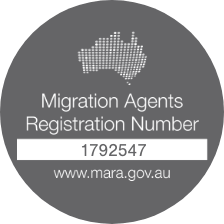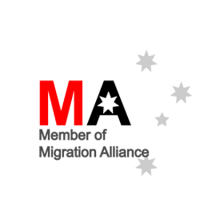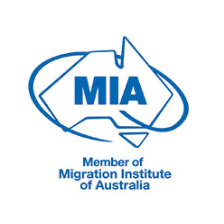Partner / Family
July 18, 2022 2022-08-11 0:59Partner / Family
Partner / Family
Create a lifetime of memories living the Australian dream
Many families like yours come to Australia looking for a brighter future
Perhaps you want to give your children opportunities you could only dream of back home. Or you may simply want to spend a few years enjoying Australia’s incredible lifestyle, creating a treasure trove of precious memories including:
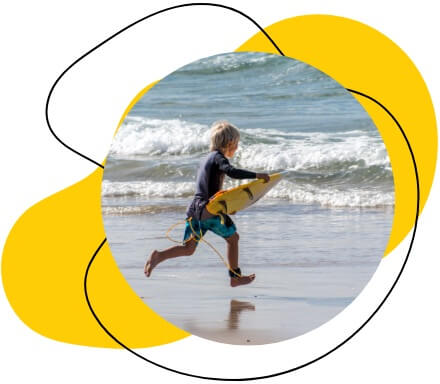
Relaxing on Sydney’s world-famous beaches
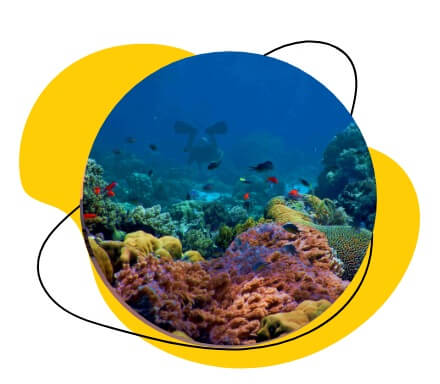
Learning to scuba dive on the Great Barrier Reef
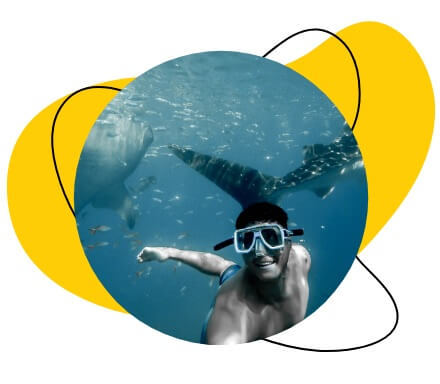
Swimming with magnificent whale sharks on the Ningaloo Reef in Western Australia
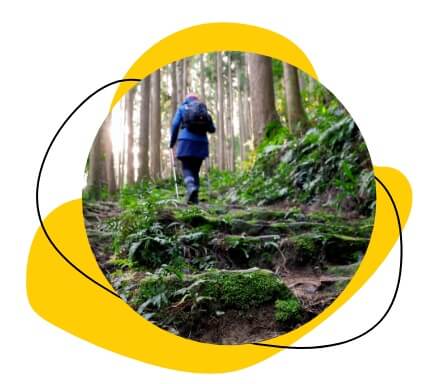
Hiking through lush green rainforests and spotting wild cassowaries in Far North Queensland
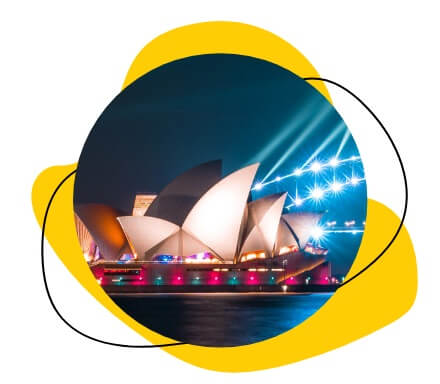
Sitting front row in the Sydney Opera House as you take in one of the many world-class performances

Enjoying a romantic picnic under the shade of a magnificent stately tree in one of the many botanical gardens
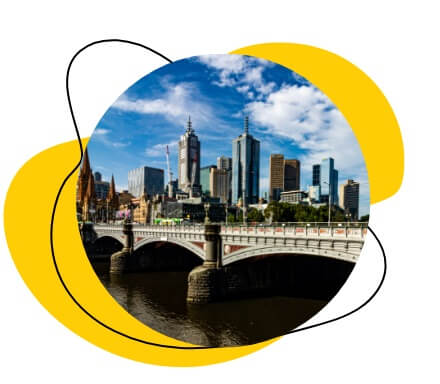
Taking a sunset stroll by the Yarra River and marvelling at the waterway’s famous bridges

Meandering through Melbourne’s famous laneways, a foodies’ paradise bustling with cute cafes, quirky bars and vibrant street art
VISA PROCESS
How we can help you
It doesn’t matter whether you’re married with kids, a de facto couple, or in a same-sex relationship, we’ll pull out all the stops to make your migration dream a reality.
We exhaust all legal avenues to keep families together and bring them to Australia. We start by evaluating your profile and circumstances against a backdrop of the relevant migration laws. Then we devise a strategic plan (we’re particularly fastidious at stage one of the partner visa).
Book an appointment today to find out the best visa pathway for your circumstances.
We’ll also give you invaluable practical advice along the way. Let us tell you about our favourite local discoveries; the little cafes and restaurants which might not look much, but where the food (and the prices) are simply mind-blowing.



VISA PROCESS
How we can help you
It doesn’t matter whether you’re married with kids, a de facto couple, or in a same-sex relationship, we’ll pull out all the stops to make your migration dream a reality.
We exhaust all legal avenues to keep families together and bring them to Australia. We start by evaluating your profile and circumstances against a backdrop of the relevant migration laws. Then we devise a strategic plan (we’re particularly fastidious at stage one of the partner visa).
Book an appointment today to find out the best visa pathway for your circumstances.
We’ll also give you invaluable practical advice along the way. Let us tell you about our favourite local discoveries; the little cafes and restaurants which might not look much, but where the food (and the prices) are simply mind-blowing.
Partner / Family Visas
Parent Visa (subclass 103)
This visa allows parents to live in Australia on a permanent basis provided they have a child who is an Australia citizen, permanent resident or an eligible New Zealand citizen who resides in Australia.
The parent(s) have to be sponsored by their child who has been residing lawfully in Australia for a period of two years preceding the application.
- You can be in or outside Australia when you apply for this visa.
- You must be outside Australia when a decision is made on your application.
- There can be long waiting times of up to 30 years before this visa is approved.
This is a permanent Visa (PR) that allows your family members to:
- Reside in Australia on an indefinite basis.
- Work as well as study in Australia.
- Enrol in Medicare, Australia’s scheme for health-related care and expenses.
- Apply for citizenship, if eligible.
- Sponsor eligible family members and relatives for permanent residence.
- Travel to and from Australia for a period of five years from the date the visa is granted. Afterwards, you will need a resident return visa or another visa to return to Australia.
- Receive age pension or social security payments subject to waiting times.
Contributory Parent (Temporary) Visa (subclass 173)
This visa allows parents to live in Australia for up to two years, provided they have a child who is an Australian citizen, permanent resident or eligible New Zealand citizen who resides in Australia.
The parent(s) have to be sponsored by their child who has been residing lawfully in Australia for a period of two years preceding the application.
This visa is temporary and cannot be renewed or extended. After arriving in Australia you have two years to apply for a Contributory Parent Visa under subclass 143. Applying for this temporary subclass 173 visa before the permanent subclass 143 visa lets you spread the costs of your migration over a number of years.
- You can be in or outside Australia when you apply for this visa.
- You must be outside Australia when the visa is decided.
This is a temporary Visa that allows your family members to:
- Reside in Australia for two years.
- Work as well as study in Australia.
- Enrol in Medicare, Australia’s scheme for health-related care and expenses.
- Travel to and from Australia for a period of two years from the date the visa is granted.
- Apply for a permanent Contributory Parent Visa within 2 years.
Contributory Parent (Permanent) Visa (subclass 143)
This visa allows parents to live in Australia on a permanent basis provided they have a child who is an Australia citizen, permanent resident or an eligible New Zealand citizen who resides in Australia.
The parent(s) have to be sponsored by their child who has been residing lawfully in Australia for a period of two years preceding the application.
You could apply for the Contributory Parent (Temporary) visa (subclass 173) before this visa. Applying for the temporary visa and then this permanent visa costs more but the costs are spread across the two visas over a longer period of time. You could also apply for a Parent visa (subclass 103). The subclass 103 visa costs less than this visa but there can be long waiting times of up to 30 years.
• You can be in or outside Australia when you apply for this visa.
• You can be in Australia when the visa is decided if you hold a Contributory Parent (Temporary) visa (subclass 173) or in some specific cases.
This is a permanent Visa (PR) that allows your family members to:
- Reside in Australia on an indefinite basis.
Work as well as study in Australia. - Enrol in Medicare, Australia’s scheme for health-related care and expenses.
- Apply for citizenship, if eligible.
- Sponsor eligible family members and relatives for permanent residence.
- Travel to and from Australia for a period of five years from the date the visa is granted. Afterwards, you will need a resident return visa or another visa to return to Australia.
- Receive age pension or social security payments subject to waiting times.
Aged Parent Visa (subclass 804)
This visa allows parents who are old enough to receive the Australian aged pension to live in Australia on a permanent basis provided they have a child who is an Australia citizen, permanent resident or an eligible New Zealand citizen who resides in Australia.
The parent(s) have to be sponsored by their child who has been residing lawfully in Australia for a period of two years preceding the application.
- You must be in Australia when you apply for the visa and when a decision is made.
- There can be long waiting times of up to 30 years before this visa is approved.
This is a permanent Visa (PR) that allows your family members to:
- Reside in Australia on an indefinite basis.
- Work as well as study in Australia.
- Enrol in Medicare, Australia’s scheme for health-related care and expenses.
- Apply for citizenship, if eligible.
- Sponsor eligible family members and relatives for permanent residence.
- Travel to and from Australia for a period of five years from the date the visa is granted. Afterwards, you will need a resident return visa or another visa to return to Australia.
- Receive age pension or social security payments subject to waiting times.
Contributory Aged Parent (Temporary) Visa (subclass 884)
This visa allows parents who are old enough to receive the Australian aged pension to live in Australia for up to two years, provided they have a child who is an Australian citizen, permanent resident or eligible New Zealand citizen who resides in Australia.
The parent(s) have to be sponsored by their child who has been residing lawfully in Australia for a period of two years preceding the application.
This visa is temporary and cannot be renewed or extended. After arriving in Australia you have two years to apply for a Contributory Aged Parent Visa under subclass 864. Applying for this temporary subclass 884 visa before the permanent subclass 864 visa lets you spread the costs of your migration over a number of years.
• You must be in Australia when you apply for this visa and when a decision is made.
This is a temporary Visa that allows your family members to:
- Reside in Australia for two years.
- Work as well as study in Australia.
- Enrol in Medicare, Australia’s scheme for health-related care and expenses.
- Travel to and from Australia for a period of two years from the date the visa is granted.
- Apply for a permanent Contributory Aged Parent Visa within 2 years.
Contributory Aged Parent (Permanent) Visa (subclass 864)
This visa allows parents who are old enough to receive the Australian aged pension to live in Australia on a permanent basis provided they have a child who is an Australia citizen, permanent resident or an eligible New Zealand citizen who resides in Australia.
The parent(s) have to be sponsored by their child who has been residing lawfully in Australia for a period of two years preceding the application.
You could apply for the Contributory Aged Parent (Temporary) visa (subclass 884) before this visa. Applying for the temporary visa and then this permanent visa costs more but the costs are spread across the two visas over a longer period of time. You could also apply for an Aged Parent visa (subclass 804). The subclass 804 visa costs less than this visa but there can be long waiting times of up to 30 years.
• You must be in Australia when you apply for this visa and when a decision is made.
This is a permanent Visa (PR) that allows your family members to:
- Reside in Australia on an indefinite basis.
- Work as well as study in Australia.
- Enrol in Medicare, Australia’s scheme for health-related care and expenses.
- Apply for citizenship, if eligible.
- Sponsor eligible family members and relatives for permanent residence.
- Travel to and from Australia for a period of five years from the date the visa is granted. Afterwards, you will need a resident return visa or another visa to return to Australia.
- Receive age pension or social security payments subject to waiting times.
Partner Temporary/Permanent Visa (subclasses 820 and 801)
The Partner visas (subclasses 820 and 801) allow the partner or spouse of an Australian citizen, Australian permanent resident or eligible New Zealand citizen to live in Australia.
The temporary Partner visa (subclass 820) is granted first and lets you stay in Australia while the permanent Partner visa (subclass 801) is processed.
Obtaining the permanent Partner visa is a two-stage process. To be eligible for a permanent partner visa you first need to be granted a temporary partner visa. You apply for both the permanent and temporary visas at the same time and pay only one fee. If you are granted the temporary visa, you are eligible to be assessed for the permanent Partner visa (subclass 801) about two years after you lodged your application. You will need to provide further documents for this assessment. If you have been in a long-term relationship before you lodge your application, the permanent subclass 801 visa may be granted immediately after the temporary subclass 820 visa.
- You must be in Australia when you lodge your application and when a decision is made on the temporary Partner visa (subclass 820).
- You can be in or outside Australia when a decision is made on the permanent Partner visa (subclass 801).
If you are outside Australia when you want to lodge your application, consider either:
- a Partner visa (subclass 309 and 100).
- a Prospective Marriage visa (subclass 300).
The Provisional Partner Visa (subclass 820) allows you to:
- Reside in Australia until a decision is made on your Permanent Partner Visa (subclass 801).
- Work and study in Australia.
- Enrol in Medicare, Australia’s scheme for health-related care and expenses.
The Permanent Partner Visa (subclass 801) allows you to:
- Reside in Australia permanently.
- Work and study in Australia.
- Apply for citizenship, if eligible.
- Sponsor eligible family members and relatives for permanent residence.
- Travel to and from Australia for a period of five years from the date the visa is granted. Afterwards, you will need a resident return visa or another visa to return to Australia.
Partner (Provisional) and Partner (Migrant) Visas (subclasses 309 and 100)
The Partner visas (subclasses 309 and 100) allow the partner or spouse of an Australian citizen, Australian permanent resident or eligible New Zealand citizen to live in Australia.
The temporary Partner (Provisional) visa (subclass 309) is granted first and lets you stay in Australia while the permanent Partner (Migrant) visa (subclass 100) is processed.
Obtaining the permanent Partner (Migrant) visa (subclass 100) is a two-stage process. To be eligible for a permanent partner visa you first need to be granted a temporary Partner (Provisional) visa (subclass 309).
You apply for both the permanent and temporary visas at the same time and pay only one fee. If you are granted the temporary Partner (Provisional) visa (subclass 309), you are eligible to be assessed for the permanent Partner (Migrant) visa (subclass 100) about two years after you lodged your application. You will need to provide further documents for this assessment.
If you have been in a long-term relationship before you lodge your application, the permanent Partner (Migrant) visa (subclass 100) may be granted immediately after the temporary Partner (Provisional) visa (subclass 309).
- You must be outside Australia when you lodge your application and when a decision is made on the Partner (Provisional) visa (subclass 309).
- You can be in or outside Australia when a decision is made on the permanent Partner visa (subclass 100).
The Partner (Provisional) Visa (subclass 309) allows you to:
- Come to Australia to live until a decision is made on your permanent Partner visa (subclass 100).
- Work and study in Australia.
- Enrol in Medicare, Australia’s scheme for health-related care and expenses.
The Partner (Migrant) Visa (subclass 100) allows you to:
- Reside in Australia permanently.
- Work and study in Australia.
- Apply for citizenship, if eligible.
- Sponsor eligible family members and relatives for permanent residence.
- Travel to and from Australia for a period of five years from the date the visa is granted. Afterwards, you will need a resident return visa or another visa to return to Australia.
Prospective Marriage Visa (subclass 300)
This visa allows people to come to Australia to marry their prospective spouse. If you are granted this visa, you should marry your prospective spouse and apply for a Partner (subclasses 820 and 801) visa before your Prospective Marriage visa (subclass 300) expires.
- You must be outside Australia when you apply for the visa and when the visa is decided.
The Visa allows you to:
- Travel to and stay in Australia for up to nine months.
- Work in Australia.
- Study in Australia at your own expense.
- Travel outside Australia as many times as you want.
New Zealand Citizen Family Relationship (Temporary) Visa (subclass 461)
This visa allows a non-New Zealand family member of a New Zealand citizen to live and work in Australia for up to five years.
This Visa allows you to:
- Work and study in Australia.
- Travel to, enter and remain in Australia for a period of five years from the date the visa is granted.
Visitor Visa (subclass 600)
This visa allows you to travel to Australia to visit or for business visitor purposes for a duration of up to three, six or 12 months.
- The base application charge for this visa ranges from AUD145 to AUD1065.
- The eVisitor (subclass 651) visa is free. Only passport holders of certain countries are eligible for this Visa.
- The Electronic Travel Authority (subclass 601) visa has an AUD20 service charge. Only passport holders of certain countries are eligible for this Visa.
- You can be in or outside Australia when you apply for this visa.
- If you apply for this visa in Australia, you must be in Australia to be granted the visa.
- If you apply for this visa outside Australia, you must be outside Australia to be granted the visa.
- Depending on certain conditions, you might be able to extend your Visa before it expires and if you are still in Australia.
The Visa allows you to:
- Travel to and stay in Australia for the duration of the Visa.
- Study in Australia for up to 3 months and at your own expense.
- Travel outside Australia as many times as you want as per the Visa conditions.
The Visa does not allow you to:
- Work in Australia.
- Apply for another Visa if you have condition 8503 imposed.
Do you need a Visa Appeal or Review?
Our team at Orbis Advisors is well equipped and extensively experienced in acting for our clients in case they are facing a visa refusal or cancellation.
Partner / Family Frequently asked Questions & Answers
Offshore cases: Between six months and two years.
Onshore: One to three years.
By law, no migration agent can guarantee a successful outcome.
However, applying through us gives you the peace of mind of knowing we’ve explored all the best possible options.
Plus, you know we’ve filed the strongest application possible which has been revised by an experienced pair of eyes.
We pay attention to even the tiniest details and provide all the necessary supporting documents to avoid unnecessary delays.
Yes, any application can be refused based on several grounds, the most common being:
• Providing bogus documents
• Fake relationship
• Not meeting character requirements
• Not meeting health requirements
The Department of Home Affairs fee starts from $7850, depending on the number of applicants.
Onshore applicants can work full-time once the bridging visa is active.
Offshore applicants have full work rights once their visa has been granted and they arrive in Australia.
Onshore applicants will have full access to Medicare once they lodge their application.
Offshore applicants will have full access to Medicare once the Visa has been granted and they arrive in Australia.
As an ethical agency, we operate in a transparent way that protects both our clients and our reputation.
We will never put you in a position where the authorities might question your application and ruin your chances of making Australia home.
There are quite a few options for sponsorship when it comes to getting your family closer to you.
Here are a few examples:
• Remaining Relative Visa
• Skilled Visa
• Student Visa
If you would like to have your parents in Australia long-term, the most common visa options are:
• Parent Visa
• Aged Parent Visa
If long-term options are not in your scope, your parents may also be eligible for a Sponsored Parent Temporary Visa, valid for three or five years.
Enjoy life as a family in the land Down Under
Book an appointment today to discover the best visa for your family’s specific circumstances.
